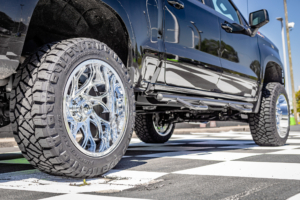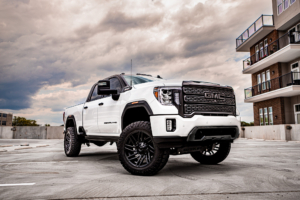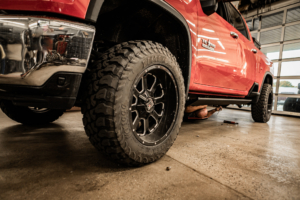Steps for outdoor vehicles are typically made of aluminum or steel and are designed to provide a safe and convenient way to get in and out of a vehicle. They are often used on trucks, SUVs, and other vehicles that have a high ground clearance. Not all steps are created equal, so it is important to make sure that the ones you choose are compatible with your vehicle. Think about the size and the material of the steps. Steps come in a variety of sizes, so you need to choose ones that will fit your vehicle properly. Steps can be made from a variety of materials, each with its own advantages and disadvantages. We can help you choose the size and material which will best fit your needs!
Size of the Steps
The height of the steps should be appropriate for the height of your vehicle. If the steps are too low, you may have to reach down to get on them, which can be difficult for people with limited mobility. If the steps are too high, you may have to climb up them, which can be dangerous. The width of the steps should be wide enough to allow you to comfortably get on and off the vehicle. If the steps are too narrow, you may feel cramped or unstable. The length of the steps should be long enough to allow you to get on and off the vehicle without having to reach too far. If the steps are too short, you may have to lean over to get on and off the vehicle, which can be dangerous.
Material
Steps come in a variety of material. Aluminum is a lightweight material that is strong and durable. It is also relatively inexpensive, making it a popular choice for steps. However, aluminum can be slippery, so it is important to choose steps that have a non-slip surface. Steel is a stronger material than aluminum, but it is also more expensive. Steel steps are less likely to be slippery than aluminum steps, but they can be heavier and more difficult to install. Plastic steps are lightweight and easy to install. However, plastic steps are not as strong as aluminum or steel steps, and they may not be as durable in harsh conditions. Rubber steps are non-slip and provide good traction. They are also relatively lightweight and easy to install. However, rubber steps can be more expensive than other materials.
Various Terrains
We have steps for all types of terrains. If you plan on driving on rough terrain, such as rocks, dirt, or mud, you will need steps that are made of a strong and durable material. Aluminum steps may be sufficient for light off-roading, but steel or rubber steps are a better choice for more challenging terrain. If you plan on driving on wet terrain, such as snow or rain, you will need steps that are non-slip. Aluminum steps can be slippery when wet, so steel or rubber steps are a better choice. If you plan on driving in cold weather, you will need steps that are made of a material that is not prone to freezing and cracking. Aluminum steps are not a good choice for cold weather, as they can become brittle and crack. Steel or rubber steps are a better choice for cold weather.








